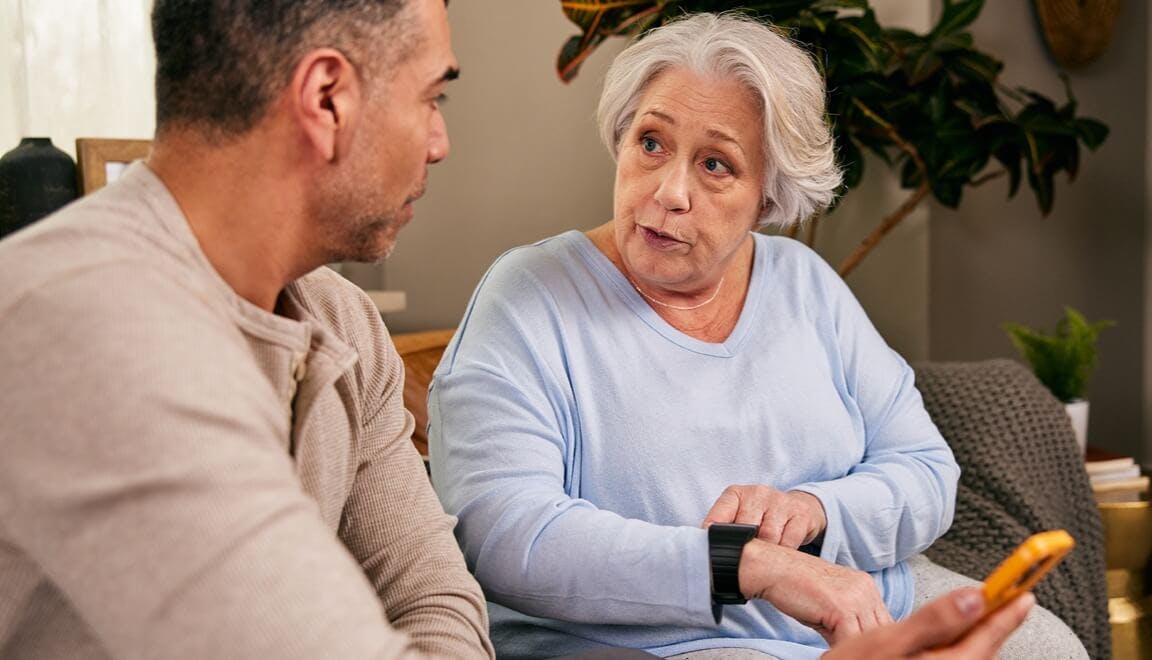Talking to an older adult about safely aging in place.
April 08, 2022

Determining if an older adult needs help.
Navigating a challenging—but necessary—conversation.
For practical tips on handling this discussion, visit AARP.
Channeling compassion.
Read this article for strategies on compassionately advocating for your loved one.
You may also be interested in

July 22, 2024
How to Talk with Your Children about Aging in Place
Navigating the conversation about aging in place with your children can be challenging. Learn effective strategies to maintain your independence while involving your loved ones in your care. Discover tips on setting boundaries, establishing communication, and creating shared goals to ensure a safe and comfortable home environment.

July 1, 2024
Health Benefits of Social Connection for Older Adults
Connecting with other people is a natural—and critical—part of life. We mingled with friends in grade school and had dinners with coworkers throughout our careers, so, as you might expect, it's important to remain social as an adult.

June 12, 2024
Myths About Falling As We Age
To make sure you know the facts about falling, we wanted to share some common misconceptions about falls . This information will help you live a healthier life, so that you can be your best self for you and your loved ones. Here are some common misconceptions about falling.

May 29, 2024
How to talk with your parent about wearing a medical alert device
When it comes to investing in a medical alert device, many people don’t see this as a desirable change to their lifestyle. Oftentimes, the preconceived resistance to a medical alert device is so strong, that navigating these conversations with loved ones just adds stress for all involved.

May 22, 2024
Fall Protection: 5 Ways to Stay Safe
As we age, it’s important to prioritize our safety to avoid the risk of falls. Fortunately, by making a few adjustments in your home, you can significantly enhance your safety. To help you with this, we’ve put together some practical tips for preventing falls.

May 15, 2024
How to Live Your Best Life in Your 70s
Just because you're aging doesn't mean it's time to stop having a good time—you can still live in your 70s and beyond. Now, more than ever, you know yourself, you have confidence, and you can live your life on your own terms. One of our customers at Silvertree put it well when they said, "I have lived my life backwards and thoroughly enjoy it."